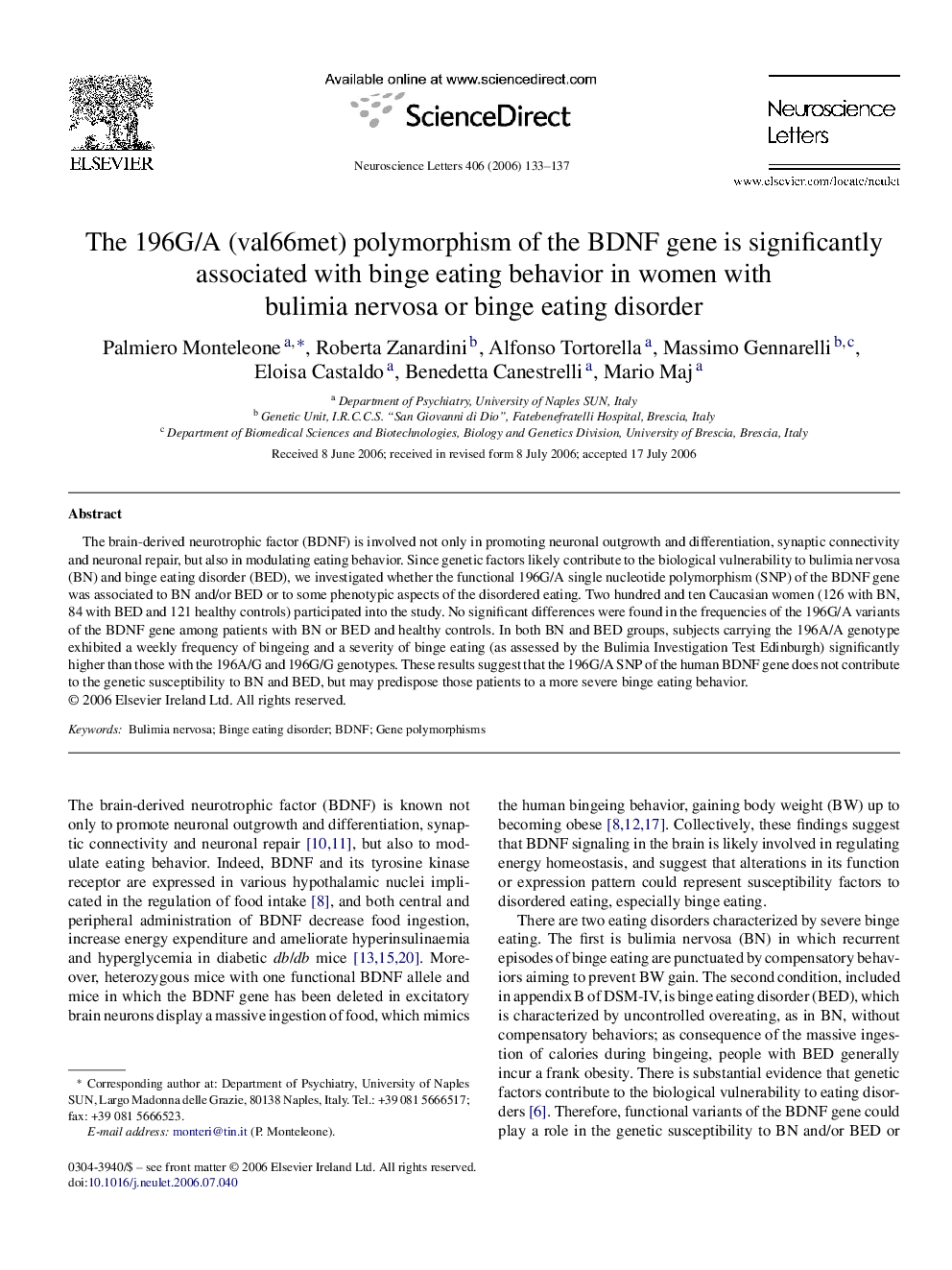| Article ID | Journal | Published Year | Pages | File Type |
|---|---|---|---|---|
| 4350566 | Neuroscience Letters | 2006 | 5 Pages |
The brain-derived neurotrophic factor (BDNF) is involved not only in promoting neuronal outgrowth and differentiation, synaptic connectivity and neuronal repair, but also in modulating eating behavior. Since genetic factors likely contribute to the biological vulnerability to bulimia nervosa (BN) and binge eating disorder (BED), we investigated whether the functional 196G/A single nucleotide polymorphism (SNP) of the BDNF gene was associated to BN and/or BED or to some phenotypic aspects of the disordered eating. Two hundred and ten Caucasian women (126 with BN, 84 with BED and 121 healthy controls) participated into the study. No significant differences were found in the frequencies of the 196G/A variants of the BDNF gene among patients with BN or BED and healthy controls. In both BN and BED groups, subjects carrying the 196A/A genotype exhibited a weekly frequency of bingeing and a severity of binge eating (as assessed by the Bulimia Investigation Test Edinburgh) significantly higher than those with the 196A/G and 196G/G genotypes. These results suggest that the 196G/A SNP of the human BDNF gene does not contribute to the genetic susceptibility to BN and BED, but may predispose those patients to a more severe binge eating behavior.
